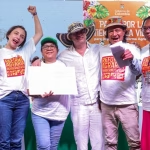
Europe’s Silent Middle: Why Migration Isn’t the Polarised Fight You Think It Is
The Dutch have voted. Migration was once again front and centre. Campaigns warned of crises, headlines framed Europe as divided. Open borders versus closed minds, compassion versus control. It all sounds like Europe has taken sides. But has it? New research from the PACES project, led by Anne-Marie Jeannet, Associate Professor at the Department of Social and Political Science, University



























































